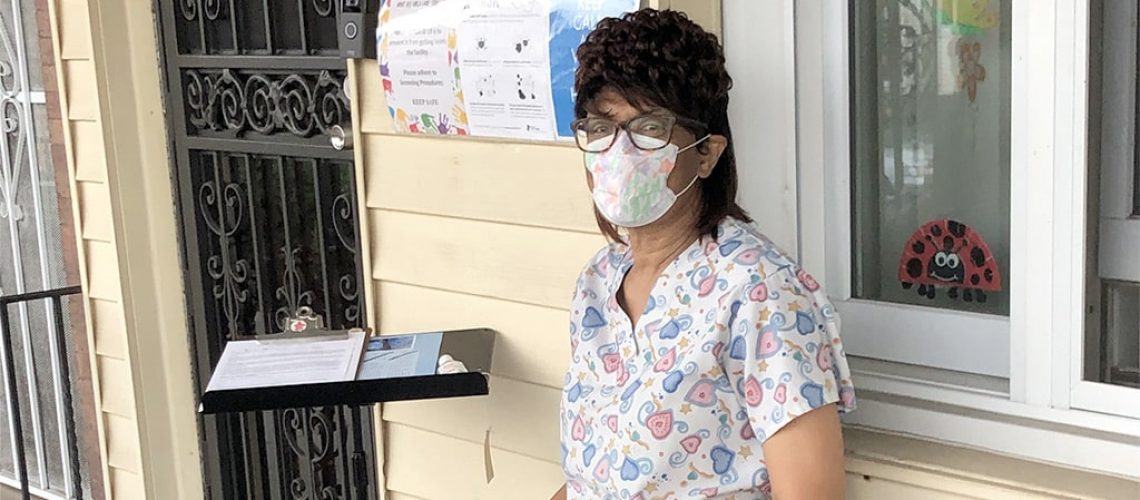During the COVID-19 pandemic, home-based child care (HBCC) has remained open, struggling to respond to increased child and family needs and new health, safety, and business challenges. Meeting the physical, mental, social, and economic needs of children, families, and providers has never been more pressing; new attention and funding are needed to ensure that home-based providers can fully participate in and support access to these critical services.
In a recent post on emotional support during the pandemic and how it is affecting families, the Center for Translational Neuroscience at the University of Oregon, through its Rapid Assessment of Pandemic Impact on Development Early Childhood Household Survey Project, has demonstrated “the importance of caregiver emotional support during these challenging times, and the need for efforts that help to strengthen such supports.”
HBCC, including licensed family child care, has largely remained open during the pandemic, providing needed education and care to young children. HBCC providers offer referrals to families that need additional services and supports, but cannot provide the range of services or the intensity of services needed during the pandemic. Often working 12–15 hour days, HBCC providers are stretched to capacity. They are educators, caregivers, and small business owners, and often struggle with their own health, wellness, and financial issues.
Key levers for using the existing system of trusted HBCC to respond to this pressing need of the moment are described fully in the Home Grown discussion paper, Home-Based Child Care Networks: Making Connections to Make a Difference.
Networks, which provide expert, centralized, and efficient programmatic and business services to groups of HBCC providers, can bolster HBCC providers’ ability to offer comprehensive services to families.
This paper, Comprehensive Services in Home-Based Child Care Networks: Meeting the Diverse Needs of Children and Families, further develops the concept and explores methods to integrate various health, mental health, and emotional support services into HBCC.
One model of effective HBCC networks that can provide comprehensive services is when Head Start/Early Head Start (HS/EHS)grantees partner with licensed family child care providers. Head Start has an existing framework for bringing comprehensive services to children and families furthest from opportunities and resources. These children and families, who are often served in family child care programs, stand to benefit significantly from efforts to integrate HS/EHS with HBCC.
Never has the adage “timing is everything” seemed more pressing. COVID-19 has created enormous change, pain, and stress in our lives. Now, thanks to a federal Head Start funding cycle, we have the opportunity to boost family child care capacity to offer comprehensive services to families and funding and supports to family child care educators to enhance service quality and business practices. The current federal funding opportunitiesspecifically welcome family child care as a community partner and encourages integration with child care networks.
Home Grown is currently providing webinars, peer technical assistance opportunities, and an extensive resource library to make existing family child care networks and HS/EHS grantees aware of this opportunity and to encourage their participation in this effort to integrate HBCC and HS/EHS. Because now is the time.
